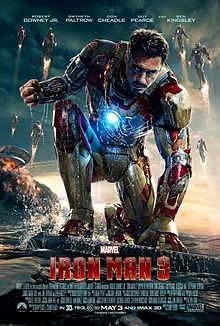 During the third act of The Purple Rose of Cairo, Cecilia (Mia Farrow) goes into the movie with Tom Baxter (Jeff Daniels). While in the townhouse, she sees a telephone and exclaims, “I’ve dreamed of a white telephone!” You see, Cecilia is a poor woman living during the Great Depression. The Purple Rose of Cairo celebrates how film allowed people to escape the hardships of their lives by watching the happy lives of Hollywood characters whose problems were always solved by the time the credits rolled. And the white princess telephone was a good example of the perfect life to people who would be lucky to even have their own black standard phone.
During the third act of The Purple Rose of Cairo, Cecilia (Mia Farrow) goes into the movie with Tom Baxter (Jeff Daniels). While in the townhouse, she sees a telephone and exclaims, “I’ve dreamed of a white telephone!” You see, Cecilia is a poor woman living during the Great Depression. The Purple Rose of Cairo celebrates how film allowed people to escape the hardships of their lives by watching the happy lives of Hollywood characters whose problems were always solved by the time the credits rolled. And the white princess telephone was a good example of the perfect life to people who would be lucky to even have their own black standard phone.
I was thinking about this today as I watched Iron Man 3 with my brother. As you may recall, my brother is a big action movie fan, with a particular love for Marvel Comics. I’m not fond of these films, but they are grist for a project I am working on about film propaganda. It is interesting that in the fascist countries, the governments had to take over the film industries. But in the United States, the private sector independently makes propaganda films that most governments would be embarrassed to produce. I feel more sullied by the average Hollywood action film than I do by an episode of The Factor.
That was fully the case with Iron Man 3. But it is done with a degree of cognitive dissonance that is staggering. Of course, that’s just perfect for an America propaganda film. Americans simultaneously think that we are the biggest, baddest country in the world. And that we are the most peaceful country in the world. We spend more on our military than the next 11 countries combined because all those other countries are a bunch of meanies who stop us from being the Gentle Giant we really are. So it makes perfect sense that Iron Man 3 would be similarly addled.
The biggest problem is Iron Man himself: Tony Stark. Since the middle of the first film, he is some bizarre kind of pacifist. He refuses to build weapons for the military. (This is how he and his father became rich, but that’s another issue.) Yet he spends all of Iron Man 2 and Iron Man 3 and The Avengers working with the military. Plus, he provides it with his “iron” suits, which are, after all, weapons. This is a real problem. The whole superhero genre is just vigilante fiction. And it works really well with someone like Daredevil, where the character is an outsider who is disliked by the authorities. You can’t be an iconoclast and an integral part of the social power structure. But that’s what all of the Iron Man movies would have us believe. And that is particularly true here where Iron Man must choose to save the president or his girl friend. Of course, in the end, through some kind of comic book lack of reason, he gets to save both; but the choice he makes is to save the president rather than Pretty Pepper Potts. Sorry: that’s Captain America bullshit.
Also, iconoclasts are not rich guys. Sure, they could have lots of money, in theory. But Tony Stark isn’t just rich; he’s corporate; he’s continuing to pull in the money. In other words: he’s David Koch with a goatee. Or something. Or rather: many things, because as usual for Marvel characters, he is whatever character the scene requires. But when he is at home in his billion dollar cliff mansion, he is above all, a rich man. He has the 21st century equivalent of the white princess phone.
And that’s important. It’s all important: rich, suave, badass. People need to escape the hardships of the second Great Depression.
Afterword
I have a general problem with the Hollywood action film: it does not celebrate real heroism. All kinds of people, but especially people who fight in wars and run into burning buildings, show great heroism. But these movies toss this sort of thing to the side. They also say that all human institutions are useless. The army, the police cannot manage anything. This is all strange, because superheroes are about as close as we ever get to the Greek heroes. But those heroes worked inside a social context. Patroclus and Achilles fought together in the war against the Trojans. Hector was above all a family man who just wanted to help run his city-state. The Hollywood action films are not the stories a great civilization tells itself.
(Take note: that last paragraph was pure conservatism. I don’t think any serious conservative would disagree with it. Of course, neo-conservatives would. Most people who call themselves “conservative” would. But real conservatives: they’d agree with me. But in general, I have no problem with real conservatives.)





